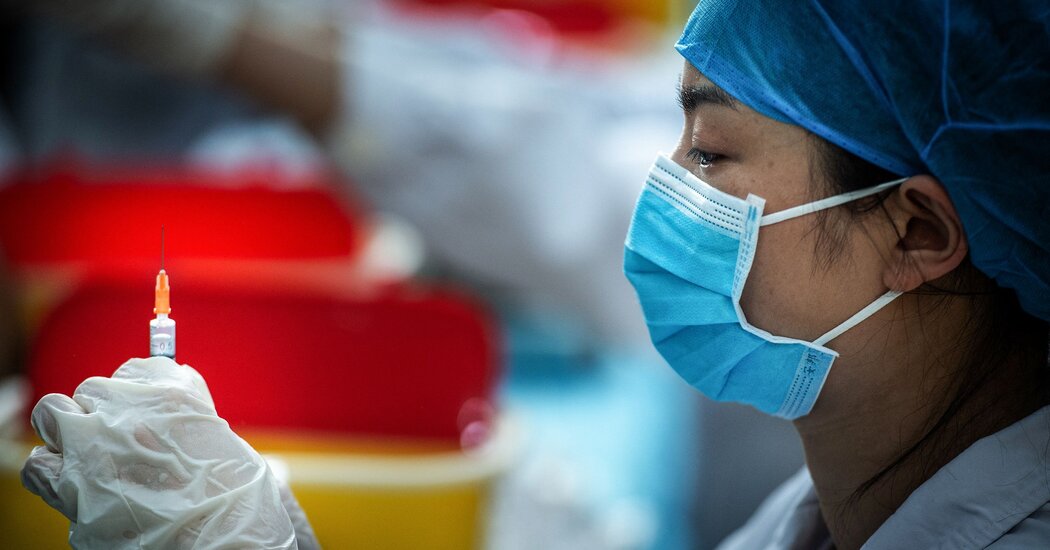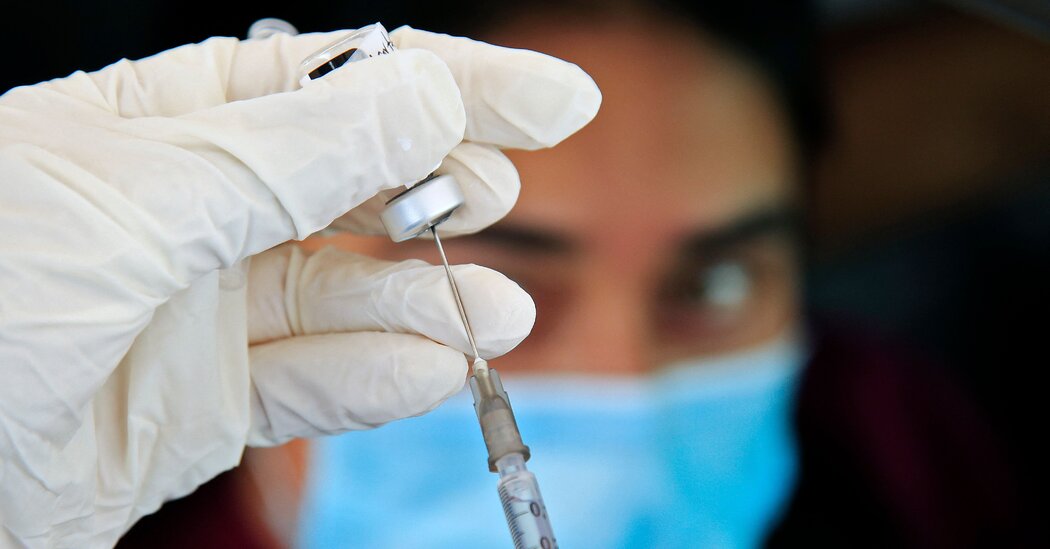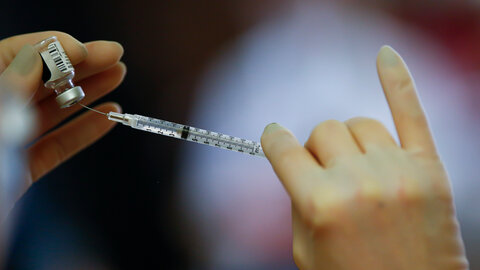Does It Matter If I Skip My Second Dose of Covid Vaccine?
Your second dose of vaccine gives you more extra protection than you might think. Here’s why you should still get it, even if it’s later than planned.Millions of people have missed their second dose of Covid-19 vaccine. But does it really matter?Yes. Public health officials say that if you’re getting a two-dose vaccine, you should complete both doses for the strongest protection against Covid-19, especially with new variants circulating the globe. From a practical standpoint, missing the second shot could create problems down the road if workplaces, college campuses, airlines and border patrol agents require proof of full vaccination.But many people aren’t getting the message that the second dose matters. More than five million people, or nearly 8 percent of those who got a first shot of the Pfizer or Moderna vaccines, have missed their second doses, according to the most recent data from the Centers for Disease Control and Prevention.The reasons people are missing their second shots vary. Some people say they are worried about side effects, which have widely been reported to be worse after the second dose. Others say second shot appointments have been canceled, and it’s been hard to reschedule. But new research also shows that many people are just confused and wrongly think one shot is enough.Researchers from Cornell University and Boston Children’s Hospital surveyed a representative sample of more than 1,000 Americans in February, and found that 20 percent believed they were strongly protected after just one dose of a two-dose vaccine. (Another 36 percent said they weren’t sure how protected they were.) And among those respondents who had already received at least one shot, 15 percent didn’t remember being told to come back for a second dose. About half didn’t remember anyone telling them that protection was strongest after the second dose, according to the report, published in The New England Journal of Medicine.“Our survey exposed the fact that there is still a lot of confusion about the timing of protection when it comes to getting vaccinated,” said John Brownstein, an epidemiologist and chief innovation officer at Boston Children’s Hospital and a co-author on the research.Adding to the confusion is the fact that some countries are delaying second doses so they can get more people vaccinated more quickly or because they have limited supply of vaccine. Both the Pfizer and Moderna vaccines are what’s known as mRNA vaccines and require two shots, ideally spaced three or four weeks apart. But in some countries, including Britain and Canada, second shots have been delayed by as long as three or four months. While that strategy has worked for countries facing distribution problems or vaccine shortages, Dr. Anthony S. Fauci, the director of the National Institute of Allergy and Infectious Diseases, has repeatedly resisted calls to adopt a one-dose strategy in the United States.The C.D.C. recently reported that a study of health care and emergency workers at high risk for exposure to the coronavirus found a single dose of Pfizer’s or Moderna’s Covid-19 vaccine was 80 percent effective at preventing Covid-19. After the second dose, the vaccines were about 90 percent effective.But vaccine experts say those numbers can mislead people into thinking there’s very little benefit from the second dose, and fail to capture some of the important changes that happen inside the body after a person is fully vaccinated with both doses.“The second dose of mRNA vaccines induces a level of virus neutralizing antibodies about 10-fold greater than the first dose,” said Dr. Paul Offit, a professor at the University of Pennsylvania and a member of the Food and Drug Administration’s vaccine advisory panel. “Also, the second dose induces cellular immunity, which predicts not only longer protection, but better protection against variant strains.”It’s also not clear how long first-dose protection lasts without the boost from a second dose, Dr. Fauci said during a White House press briefing in April.“We have been concerned, and still are, that when you look at the level of protection after one dose, you can say it’s 80 percent, but it’s a somewhat tenuous 80 percent,” Dr. Fauci said. He said there’s concern that more-contagious variants that continue to spread around the globe could partially-evade vaccine-induced antibodies after just one dose. “You’re in a tenuous zone if you don’t have the full impact” of two doses, he said.Although breakthrough infections after vaccination are rare, they do happen. A recent study of 250 people in Israel who were infected after they were partially vaccinated with the Pfizer vaccine — between two weeks after the first dose and one week after the second dose — showed that they were disproportionally infected by B.1.1.7, the variant first identified in Britain. The same study found that in a group of 149 people infected after the second dose of vaccine, eight infections with B.1.351 (the variant first identified in South Africa) occurred between days seven and 13 following the second dose. No breakthrough infections with the South Africa variant were seen 14 days after the second dose. Although it was a small sample, the finding suggested that full vaccination offers more protection against the variants, said Adi Stern, the study’s senior author, a professor at the Shmunis School of Biomedicine and Cancer Research, Tel Aviv University.Another study showing the benefits of full vaccination looked at a group of 91,134 patients who had previously been seen by doctors in the Houston Methodist Hospital system and followed them between December and April. Most were not vaccinated, but 4.5 percent were partially immunized and 25.4 percent were fully immunized. There were 225 deaths from Covid-19 in the group, and 219 (97 percent) were among the unvaccinated. But five deaths (2.2 percent) occurred among the partially immunized. Only one person (0.004 percent) died in the fully immunized group. In that study, full vaccination was 96 protective against hospitalization and 98.7 percent protective against dying from Covid-19. But the partially vaccinated were only 77 percent protected from hospitalization and 64 percent protected from fatal Covid-19.The study’s senior author, Saad B. Omer, director of the Yale Institute for Global Health, said he began the research with a “neutral” view about the benefits of two doses versus a single dose. But he’s now convinced the benefits of a second dose are meaningful.“Given the data from our study and other evidence, it does not make sense for people to skip their second dose,” Dr. Omer said. “When it comes to prevention of deaths through vaccines, the glass is 64 percent full, but wouldn’t you rather have it nearly 100 percent full for such a drastic and irreversible outcome as death?”Beyond the obvious health risks, skipping the second dose also could make your life more complicated if you want to travel or visit facilities that require proof of vaccination. “You will not be considered fully vaccinated,” Dr. Brownstein said. “It may have implications for getting back to normal again. If your vaccine passport or card doesn’t show a complete status, you may not be able to do certain things. You may not be able to get on a plane.”For people who have missed their second dose of the Pfizer or Moderna vaccines, here are answers to some common questions.Is it ever too late to get my second dose? No. If you skipped your dose for any reason, you don’t have to start all over again with another two-dose regimen. The C.D.C. has said that if supplies are low or appointments aren’t available, patients may extend the interval between doses up to six weeks. In Britain, the second dose has been delayed up to three months. Whatever the timing, doctors advise you to get your second dose, even if more time than recommended has passed since your first dose.Where should I go to get my second dose? First, try going back to your original provider — just don’t forget to take the vaccine card you were given after your first dose. At many sites, you can just walk in with your card and receive your second dose if it’s the same location as your first dose. Some state websites specifically allow you to schedule a new second dose appointment. Many CVS and Walgreens sites are also offering second doses to people who got their first shots elsewhere. In fact, stand-alone second doses represented about a quarter of the overall second doses CVS administered last week and 14 percent of those administered in April, said T.J. Crawford, a spokesman for the chain. Just call ahead to make sure they are offering the same vaccine you got the first time.I’m a college student who got my shot on campus. Can I get a second shot in a different state? Pharmacies participating in a federal vaccine distribution program now are setting aside any residency requirements for vaccine recipients. This will allow college students who got their first shot on campus to get their second dose at home.Do people who have tested positive for Covid-19 still need a second shot? Yes. Even if you’ve had Covid-19, you still will get stronger immunity from vaccination. A person’s immune response to a natural infection is highly variable. Some people may produce few antibodies, and natural antibodies seem to be less resistant to variants compared to stronger vaccine-generated antibodies. While it’s not clear how much extra benefit a recovered Covid patient gets from two doses, versus a single dose, you need a second dose to provide proof of full vaccination, should you need it for travel or for work. People who have had Covid-19 in the past are advised to wait about 90 days after infection before getting vaccinated. If you get Covid-19 after your first dose, you may need to adjust your vaccination schedule until you are fully recovered and have approval from your doctor for getting the second shot.What if I’m avoiding the second dose because I’m worried the side effects will be worse? Side effects like fatigue, headache, muscle aches and fever are more common after the second dose of both the Pfizer and Moderna vaccines. But while side effects can be unpleasant, they are manageable, short-lived and a sign that your body is building a strong immune response.Should I get the second shot if I had a severe reaction to the first dose? There are rare cases in which forgoing the second shot is medically advised. The C.D.C. recommends that people skip their second dose if they have a severe allergic reaction after their first shot. The guidance is the same for a milder allergic reaction that develops within four hours, such as hives, wheezing or swelling, even if it doesn’t require emergency care. For most other side effects, though, the agency recommends getting the second dose, unless a doctor or vaccination provider advises otherwise. If you think you had a severe or unusual reaction to your first shot, consult with a physician. You should also check with your doctor if you experience a worrying side effect or side effects that don’t seem to be going away after a few days.Rebecca Robbins
Read more →




